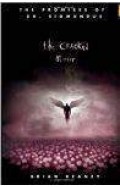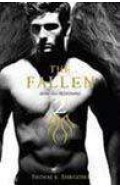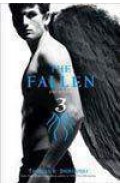Fermat’s Last Theorem: Simon Singh (Collins Modern Classics)
By: Simon Singh
-
Rs 1,361.75
- Rs 2,095.00
- 35%
You save Rs 733.25.
Due to constant currency fluctuation, prices are subject to change with or without notice.
Introducing the Collins Modern Classics, a series featuring some of the most significant books of recent times, books that shed light on the human experience – classics which will endure for generations to come.
‘Maths is one of the purest forms of thought, and to outsiders mathematicians may seem almost otherworldly’
In 1963, schoolboy Andrew Wiles stumbled across the world’s greatest mathematical problem: Fermat’s Last Theorem. Unsolved for over 300 years, he dreamed of cracking it.
Combining thrilling storytelling with a fascinating history of scientific discovery, Simon Singh uncovers how an Englishman, after years of secret toil, finally solved mathematics’ most challenging problem.
Fermat’s Last Theorem is remarkable story of human endeavour, obsession and intellectual brilliance, sealing its reputation as a classic of popular science writing.
‘To read it is to realise that there is a world of beauty and intellectual challenge that is denied to 99.9 per cent of us who are not high-level mathematicians’The Times
Introducing the Collins Modern Classics, a series featuring some of the most significant books of recent times, books that shed light on the human experience – classics which will endure for generations to come.
‘Maths is one of the purest forms of thought, and to outsiders mathematicians may seem almost otherworldly’
In 1963, schoolboy Andrew Wiles stumbled across the world’s greatest mathematical problem: Fermat’s Last Theorem. Unsolved for over 300 years, he dreamed of cracking it.
Combining thrilling storytelling with a fascinating history of scientific discovery, Simon Singh uncovers how an Englishman, after years of secret toil, finally solved mathematics’ most challenging problem.
Fermat’s Last Theorem is remarkable story of human endeavour, obsession and intellectual brilliance, sealing its reputation as a classic of popular science writing.
‘To read it is to realise that there is a world of beauty and intellectual challenge that is denied to 99.9 per cent of us who are not high-level mathematicians’The Times
Fermat’s Last Theorem: Simon Singh (Collins Modern Classics)
By: Simon Singh
Rs 1,361.75 Rs 2,095.00 Ex Tax :Rs 1,361.75
Fermat's Last Theorem: The Story of a Riddle that Confounded the World's Greatest Minds for 358 Years
By: Simon Singh
Rs 1,101.75 Rs 1,695.00 Ex Tax :Rs 1,101.75
Zubin Mehta: A Musical Journey (An Authorized Biography)
By: VOID - Bakhtiar K. Dadabhoy
Rs 472.50 Rs 1,050.00 Ex Tax :Rs 472.50
Beyond Twilight Explore The World Of vampire
By: Manuela Dunn-Mascetti
Rs 310.50 Rs 345.00 Ex Tax :Rs 310.50
The Red Pyramid (The Kane Chronicles Book 1)
By: Rick Riordan
Rs 1,705.50 Rs 1,895.00 Ex Tax :Rs 1,705.50
Dr Sigmundus: The Cracked Mirror The Promises of Dr Sigmundus
By: Brian Keaney
Rs 1,361.75 Rs 2,095.00 Ex Tax :Rs 1,361.75
No similar books from this author available at the moment.
No recently viewed books available at the moment.
Zubin Mehta: A Musical Journey (An Authorized Biography)
By: VOID - Bakhtiar K. Dadabhoy
Rs 472.50 Rs 1,050.00 Ex Tax :Rs 472.50
Fermat’s Last Theorem: Simon Singh (Collins Modern Classics)
By: Simon Singh
Rs 1,361.75 Rs 2,095.00 Ex Tax :Rs 1,361.75
Fermat's Last Theorem: The Story of a Riddle that Confounded the World's Greatest Minds for 358 Years
By: Simon Singh
Rs 1,101.75 Rs 1,695.00 Ex Tax :Rs 1,101.75











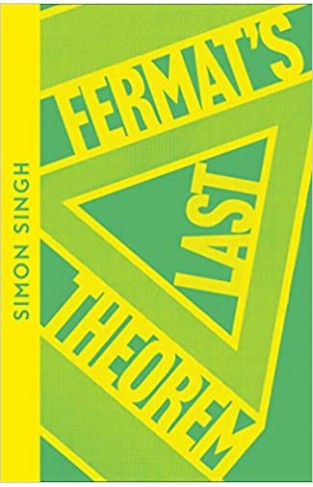
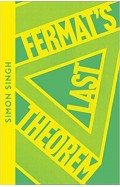
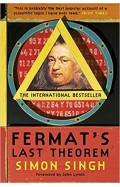
-120x187.jpg?q6)






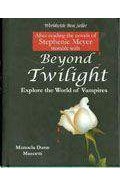
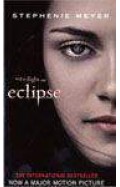
-Paperback-120x187.jpg?q6)
